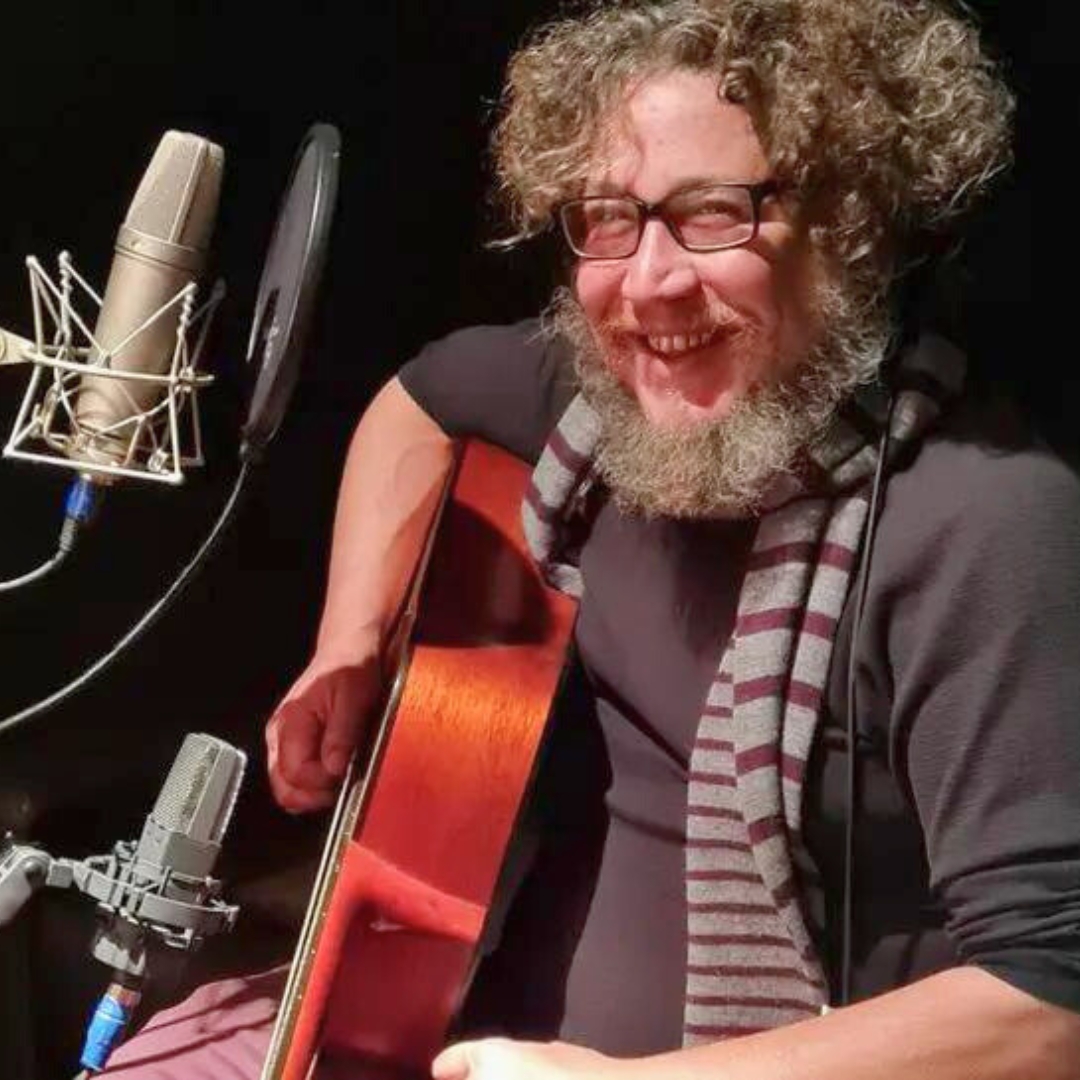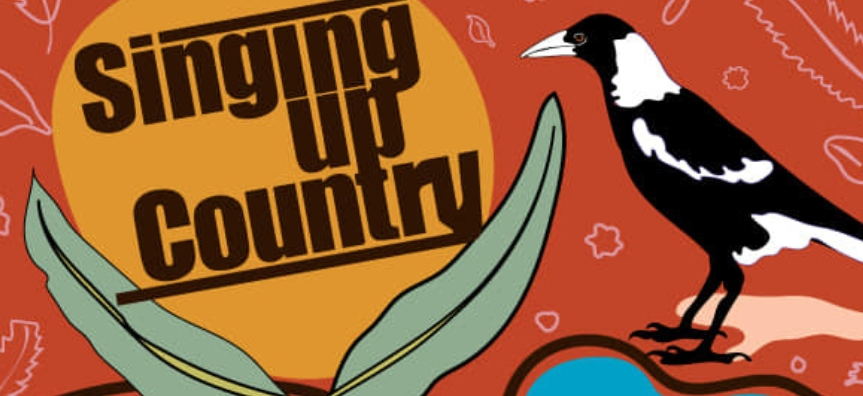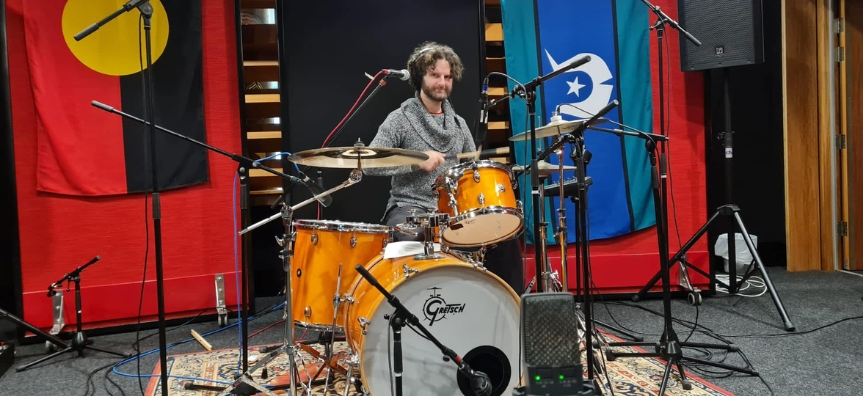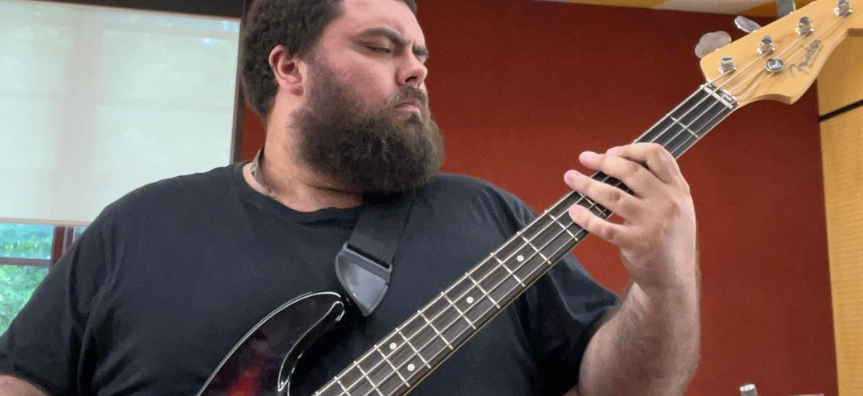
Yaegl man Michael Birk grew up in the Clarence River region of Northern NSW, and now lives and performs on the Northern Beaches. As a musician he performs with his band The Recognisers, and as an event producer he founded Singing Up Country in 2014 as part of the Gai-mariagal Festival.
Celebrating its 10th festival in 2024 with the theme 'Keep the flame alive', Singing Up Country is a festival of Aboriginal and Torres Strait Island music and Culture. Alongside Birk's The Recognisers, will be folk band The Stiff Gins, reggae group Green Hand Band, as well as Magpie, GiiMusic, and Spilt Coffee.
Singing Up Country
Sunday 7 July, 3pm - 9pm
St Anthony in the Fields Church
46 Myoora Road, Terrey Hills
Find out more and book tickets
The lyrics in your music often tell personal stories.
Where do you start when writing a song?
I start with an inspiration, and it has got to be a strong one.
One that speaks my truth and heals others as well.
My songs have lasted because they are so meaningful to me. My weaker songs are just part of the process of honing down our creative work.
Journeys and Adversity are all part of my story, but I must express the diversity of all the communities.
Your EP is named Waandyi, meaning Dingo in Yaegl Dreaming. You’ve said this is your Totem that always walks with you. A beautiful graphic of a dingo features on the EP’s artwork.
What does this collection of songs mean to you, and what do you want a listener to take away from it?
Yes, Waandyi is my Totem, the dingo. But also, Aagal is the Sea, and Aagal is another family totem.
My reclamation of my identity is a journey. My truth is strong from the big roots of the family tree.
My Traumas from history are real, even though I live here on the north side. My drive to express myself and my hope for change are what I have engraved in the songs of the Waandyi EP.
You’ve recorded songs in Yaegl Language. How is Language important in your music and your personal life?
Culture cannot be separated from the Yaegl Language.
That is the beauty when writing with the lingo, the further meaning; or kinship, or story, that goes with the song.
Learning language has shown me my talents. To write and teach in OUR language to family, and to sing in it.
I have learnt I have a good memory for lingo as well as the stories of the dreaming.
You grew up in the 80s and 90s, a pivotal time for Aboriginal musicians where Blak contemporary music was rising in mainstream popularity. Groups like No Fixed Address, Coloured Stone, Warumpi Band, and Yothu Yindi were gaining radio play and performing on international stages, while singing in Language.
What impact did this moment in Australian music history have on you, if any?
Who are your all-time biggest musical influences?
Yeah definitely - Yothu Yindi.
They were the main videoclip I remember.
But growing older and listening to other generations, I have grown a huge respect and appreciation for the ‘Rock Royalties’ like all the bands you mentioned.
Of course, Christine Anu was our star way back then too.
My biggest inspiration has come lately, and they are my contemporaries out there now. Aboriginal and Torres Strait Islander Hip Hop or Rock and Roll.
All this music and advancement of our point of view is my biggest Gee Up – to keep writing powerful stuff and keep collaborating.
Who are you playing on repeat right now? Who should we all be listening to?
Ha-ha! Well, I definitely play a lot of Baker Boy, Moju, and the Lonely Boys for our Mob.
In general, I listen to bands such as Spoon and Devine Fits.
Council is calling for local musicians and music venues to register for the Live & Local program. We’re supporting and celebrating the local music industry.
Do you have favourite music venues on the Northern Beaches? What do you like about them?
I like the breweries down in Brookie.
Plus, I would like the busking venues in areas such as Dee-Why or Narrabeen. I like music in the background whilst walking through markets. Cafés could put their hand up.
You recently worked on an event on Yaegl Country (McClean, Northern Rivers), Stars and Songlines, a celebration of Yaegl Sky Stories. It sounded magical!
How is music and astronomy connected for you, or through this event? What did you enjoy most about this event?
I think it was making history with such a magical event.
We had a super-charged local line up.
It was a privilege to perform for family and friends in the crowd, but also to play with such a professional crew and quality acts.
Through learning in life, but especially in the Yaegl Language, I have heard some names and come across stories of the stars. I’ve touched on those stories in some of my songs.
Language and Culture go together. The Yaegl Language makes more sense with our stories and vice versa.
I was proud to sing my songs that make me feel strong, knowing and singing about my culture. The sky dreaming is a huge and amazing subject.
I also enjoyed being in the green-room, how all of us acts we were relating through family and the history of the river.
This is the 10th year of Singing Up Country, after you founded the event in 2014.
This is a huge long-term contribution to the community. The National Indigenous Times described it as “bringing music, learning and a culturally safe environment to the community”.
Why do you keep returning to this event? Why was it important when you started it, and how has it changed over the years?
In 2014 we had a momentum that formed a crew of contemporaries, arts workers, volunteers, and musicians. Way back we had dancers too.
Once the ball was in motion everyone and everything came together.
And that was the key – to have a safe place to be Black and Proud! And Loud!
So, it was only natural to keep it going. And yes, this is our 10th event because of lockdowns in 2020.
We have had some amazing talent. Some have moved on, and we have had sorry business.
But we are still that strong community safe place, and keep moving forward.
What keeps me going is that we have so much support, many more new friendly faces coming each year and helping.
This year Singing Up Country starts with a Bush Tour and then moves into music performances. This is a beautifully grounding start to a music festival.
Why do you start with a Bush Tour and why do you encourage people to take part in it?
Yes, it’s very fitting for our venue St Anthony in the Fields, and our Message as Aboriginal and Torres strait Islander peoples, to have this bush tour.
Volunteers have been working hard and cleaning up the local creek for many years, but it is walking on Country with the ancestorial knowledge that is shared by Uncle Dennis Foley. That is the reason why we have our walk on Keiren’s Creek and continue revegetating it with native pants.
The Landcare group has been networking across Sydney with other Landcare groups, but they remain a small group. They’ve brought back a lot of life but still need some extra help.
There is also a deep and respectful conversation about the environment and sustainability.
This sense of spirit allows us to perform our Singing Up Country, connecting to this place and spirit on many levels. Along with such great musical performances, it is a lasting experience.



